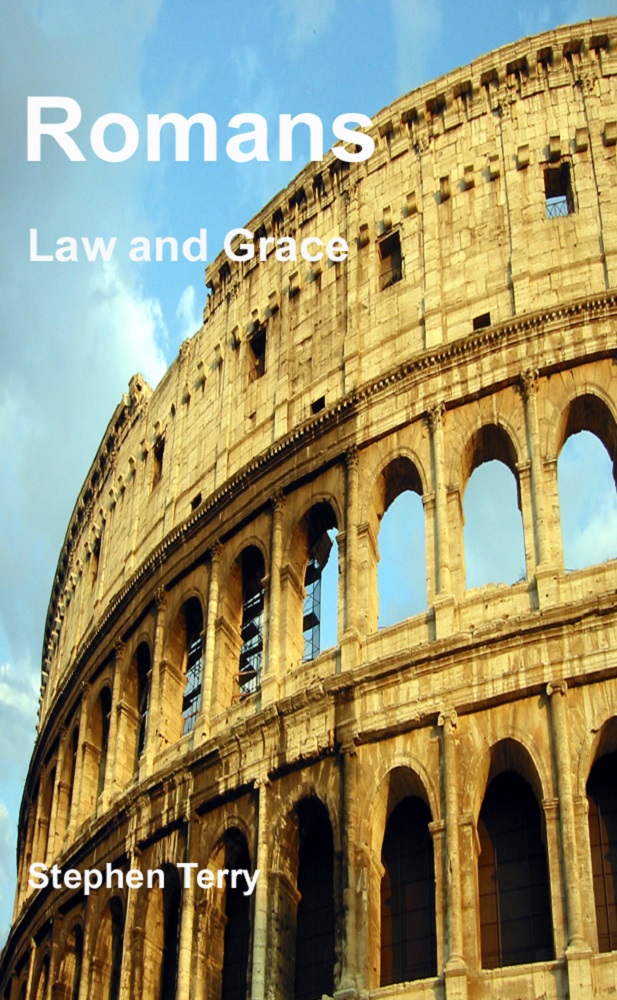The
Holy Spirit and the Church
Stephen
Terry
Commentary
for the March 4, 2017 Sabbath School Lesson
 “Make every effort to keep the unity of
the Spirit through the bond of peace. There is one body and one Spirit, just as
you were called to one hope when you were called; one Lord, one faith, one
baptism; one God and Father of all, who is over all and through all and in all.”
Ephesians 4:3-6, NIV
“Make every effort to keep the unity of
the Spirit through the bond of peace. There is one body and one Spirit, just as
you were called to one hope when you were called; one Lord, one faith, one
baptism; one God and Father of all, who is over all and through all and in all.”
Ephesians 4:3-6, NIV
It seems as though the church has been at war over
religion almost since the resurrection of Jesus. Initially it was between the Jews
and the Christians. Christianity started out as just another sect within
Judaism, but with repeated revolts by the Jews against the Roman Empire, being
considered Jewish was dangerous. By the time of the second major revolt, early
in the second century, Christians mostly chose not to become involved,
deepening the split between Judaism and Christianity. This was not helped when
Jews were denied access to Jerusalem by the Romans. This meant the administration
of churches in the city went over to the Gentile Christians by default. Between
the large influx of Gentiles into the church and this change in administration,
the church became a Gentile one and at times openly hostile to Judaism. Much of this process is well documented by
Editor, Hershel Shanks, in his book, “Partings: How Judaism and Christianity Became
Two.” Contributors to the book included Lawrence T Geraty who enjoys some
renown in Seventh-day Adventist circles for his work in archeology.
As those early centuries progressed, the church began to
be as much involved in stamping out heresies as in spreading the simple gospel
message. A full-fledged theology of apologetics began to develop. Some of it
was directed toward those in the Christian body of believers who held that
Jewish observances continued to be necessary. The Gentile believers sought a
complete separation from that line of thought, even going so far as to
challenge continued observance of what was considered the Jewish Sabbath. The
extent of this assault on Jewishness is well illustrated in Justin Martyrs, “Dialogue
with Trypho.”[i]
While Trypho may have been a “strawman” constructed for the sake of the debate,
he was nonetheless a Jew and therefore someone who needed to be set straight
regarding the gospel. But as the split between Judaism and Christianity became
more and more pronounced, and the Jews became less of a concern, other competing
theologies garnered the attention of the apologists.
One such teaching was Adoptionism which held that Jesus
was fully human and not divine, but was “adopted” by God when the Holy Spirit
descended at His baptism. Another, Sabellianism, arose about the same time and
stated that the Trinity was not three distinct persons but merely different
characterizations of the same person. Many of these teachings promoted by
various sects later determined to be heresies were focused on the nature of
Christ and His relationship to God, the Father, and the Holy Spirit. Some of
these ideas are reflected in modern church dogmas as well. For instance, the
Jehovah’s Witnesses hold to the teachings of Arius, who denied that Jesus was
divine. While these and others were promoting alternative definitions of the
nature of Christ, others, often referred to as Gnostics were focusing more
directly on the question of Good and Evil. Included in Gnostic beliefs is the
teaching that mankind’s fall into sin in the Garden of Eden was intended to
take place by God in order to fulfill his plan. This teaching is reflected today
in the teachings of the Church of Jesus Christ of Latter Day Saints, the
Mormons, who teach that God intended for man to sin in order to be able to
procreate.[ii] From these two examples,
alone, it can be seen that the desire of the church to extirpate what it has
labeled as heresies in the past, does not mean that the deed is accomplished,
even into our day. Nonetheless, this has not taught the churches to cease
trying. Both of these sects are well aware of the persecuting tendency of the
church.
The church has a long a bloody history of persecuting
dissenters. From the fourth century, when Constantine chose to support
Christianity, the church depended heavily on the state to enforce religious
dogma. In order to facilitate that enforcement, it was necessary to develop a definition
of the true faith that the state could enforce. To that end, a council was
convened in Nicaea in 325, CE. This council began a rather protracted battle on
behalf of the Trinitarians, those who supported the concept of three persons in
the Godhead, against the Arians, who denied the divinity of Jesus. That battle
raged for 56 years until the Council of Constantinople finally put the conflict
to rest within the Empire. Perhaps as an over-reaction to the threats these
alternative theologies were felt to pose to the “true” church, the institution,
with the authority of the state behind it, began to grasp ever more tightly
within its fist any sort of common access to or influence on church doctrine.
Even the reading of the Bible without guidance and interpretation was deemed a
threat as “deviant” theologies might arise from faulty understandings of the
text. Even old, suppressed heresies might once again rear their ugly heads.
Why would the state lend itself to being used in this way by the church?
Perhaps it was because when the teaching of the Bible is suppressed for any
reason it also suppresses biblical condemnation of immoral behavior. Leaders
could then feel free to oppress their people for personal gain. This
realization also crept into the church, which took advantage of the biblical illiteracy
of the masses to channel a steady flow of gold to the center of ecclesiastical
power, Rome. For centuries, the church and the abetted civil leaders grew very
wealthy until the corruption was finally dealt a critical blow when Martin
Luther figuratively cried out “Enough!” with the nailing of his “Ninety-Five
Theses” to the door of the Wittenberg Church, in the fall of 1517. The grip of
that tight fist that claimed to hold the keys of the kingdom of God began to
waiver. As the people sensed weakness, other reformers began to take a stand
against the church’s authority as well. The church which had shed the blood of
thousands in its efforts to eliminate all challengers, both theological and
secular became the object of derision and abuse. Over the following two hundred
years, many sects arose under the general banner of Protestantism, those who
protested against the Roman Church. But what was not realized at the time was
that once the pattern of schism was set, it would divide the Protestants as
well. As a result, we now have far more sects than existed in the time of the
early church. Each has a slightly different twist on doctrine, and each believes
itself to be the true faith.
What is often overlooked in our highly schismatic age is
that the church has not changed its character. Now at this point some of my
Seventh-day Adventist readers might be saying, “That’s right! The Roman
Catholic Church is still Babylon and will restart the Inquisition any day now!”
But I did not single out the Roman Catholic Church. I wrote “church” in a
generic sense. There are very few of these schismatic sects, if given the chance,
which would not also appeal to the state to enforce their doctrines. Even my
own denomination, which is Adventist of course, has had recourse to the courts
to justify things like gender discrimination, oppression of minorities, and
protection of use of the brand, “Seventh-day Adventist,” by church members who dissent from
denominational policies. All the while, the church claims that these illegal
activities are allowed to the church as protected through the free exercise of
religion guaranteed in the First Amendment to the United States Constitution.[iii]
Sadly, the church, in all its parts, has often used the
passage at the top of this commentary to justify opposition to any other
viewpoints not held by the leadership of said church. Taking
the position that there is only one true church in order to justify a peculiar
dogma, a denomination then sets itself above all other denominations as being
the sole possessor of the special favor of God. Then like the Roman
Church of old, they use whatever power is available to them, both
denominational and secular, to put down any perceived challenges to that
assertion. But perhaps the lesson of the Reformation that we still have yet to
learn is that God does not favor a particular church institution above all
others. Maybe God is in the business of saving people, not churches, and the
diversity of experiences and understandings that arise from the many
individuals He calls[iv]
to Him, instead of being a means of erecting a tower to heaven are instead
supposed to be a check on the temptation to power and corruption that we all
are prone to. Perhaps instead of uniformity, God prefers harmony, and diversity
is the only way to get there, providing we are willing to let the strings, the
brass, the woodwinds, and the rest of the orchestra all work together to make
the music God intends to conduct.
